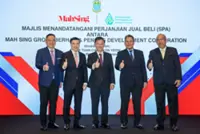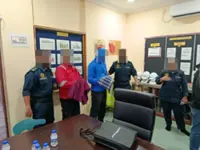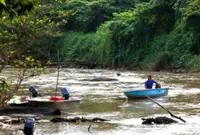GEORGE TOWN: Despite mitigating efforts from the state government to improve the water in Sungai Pinang, it has remained one of the dirtiest and smelliest rivers in the country and continues to affect the livelihood of inshore fishermen.
Although the narrow river is only 3.5km, the six tributaries of Sungai Pinang drain a basin that is home to the second highest urban population in the country (after Kuala Lumpur), at about 2,500 people per sq km.





